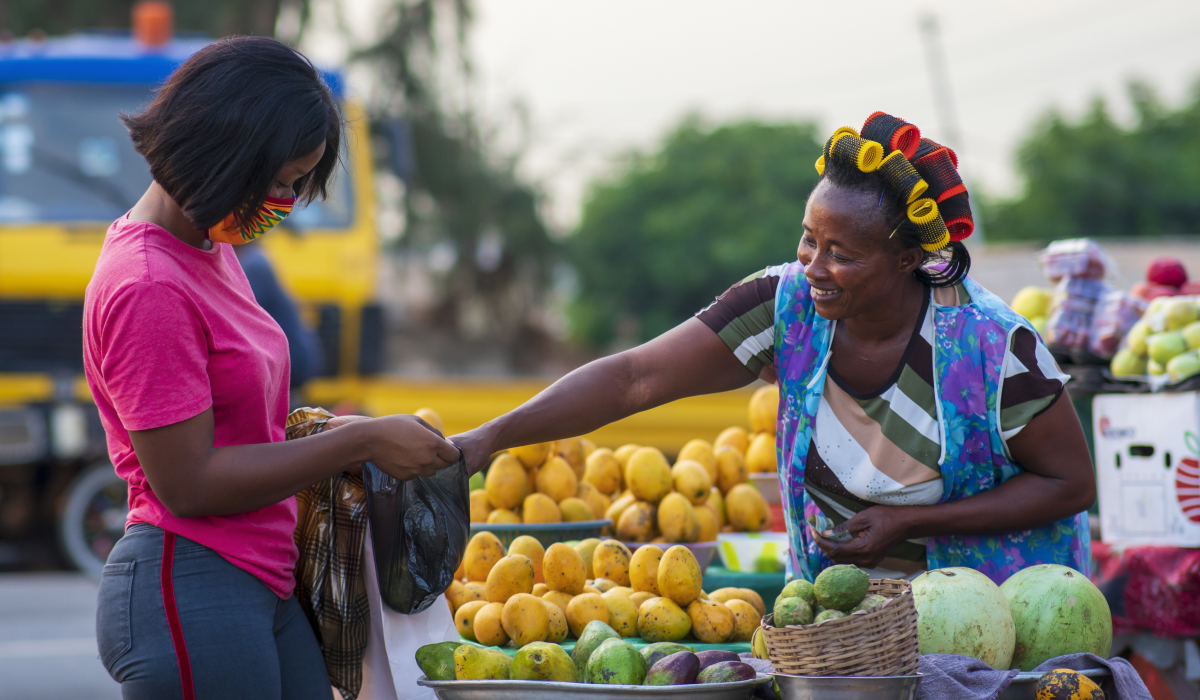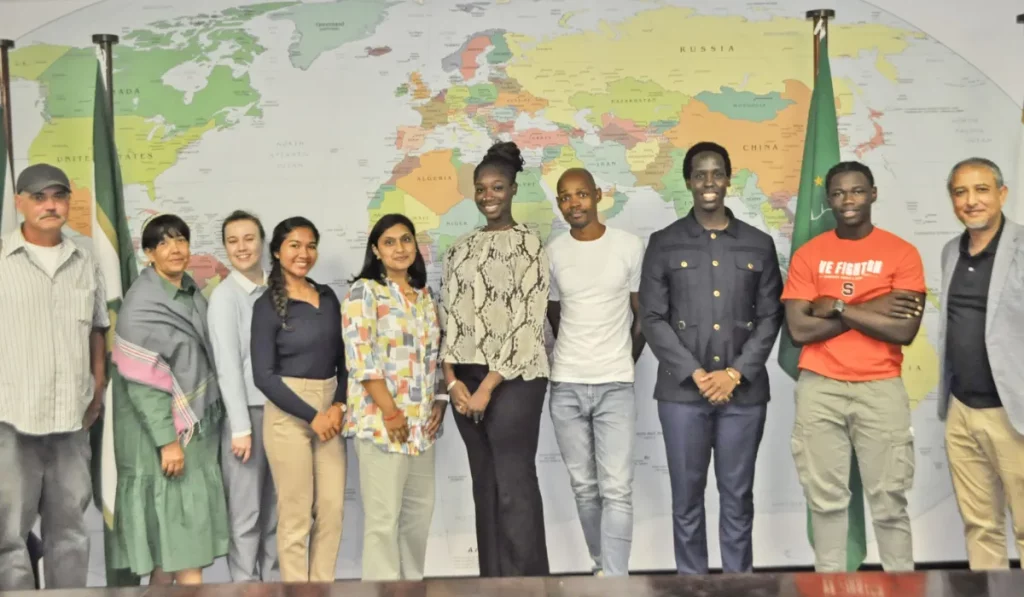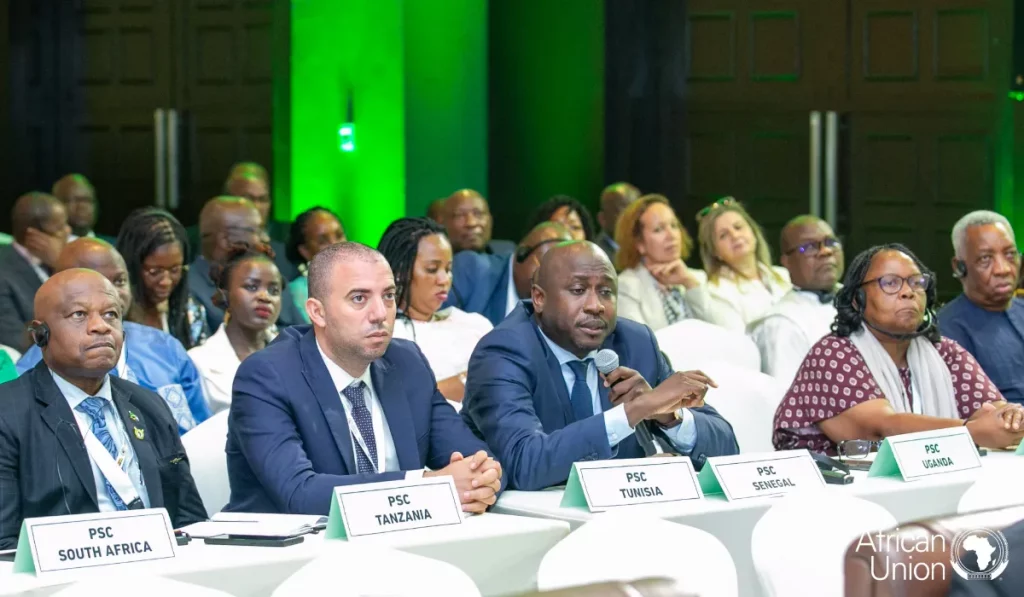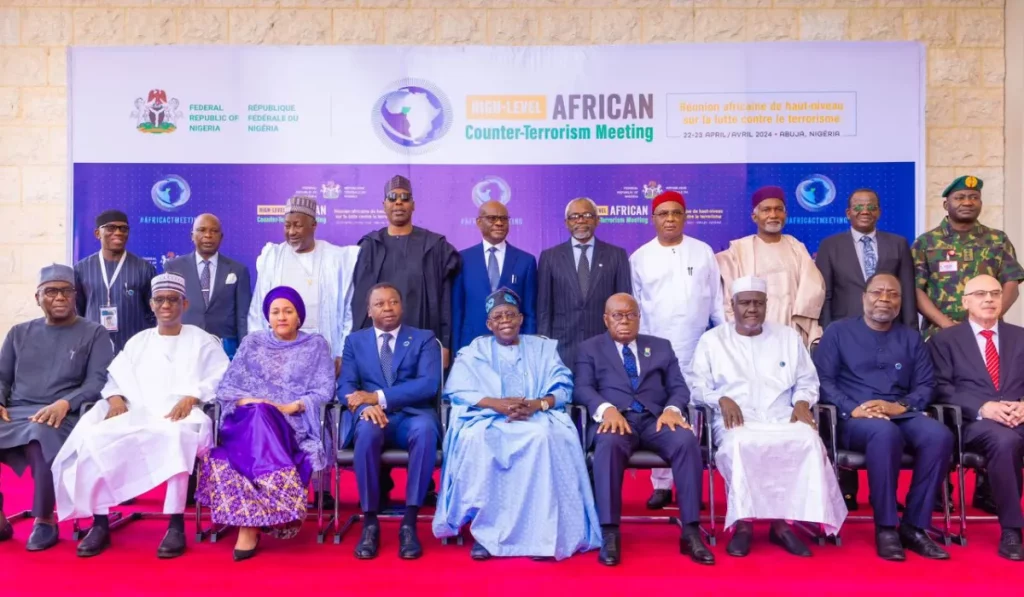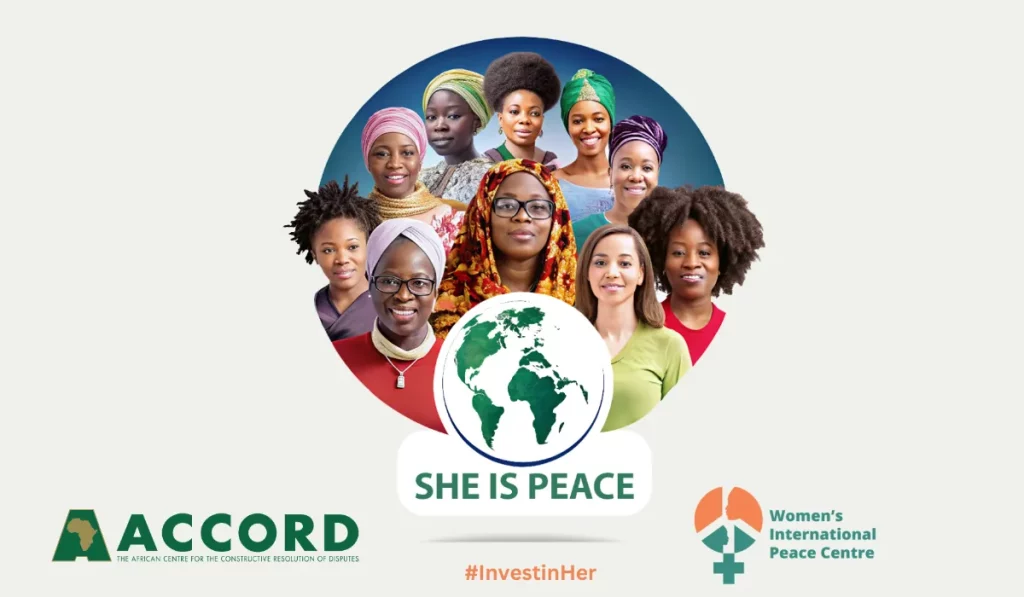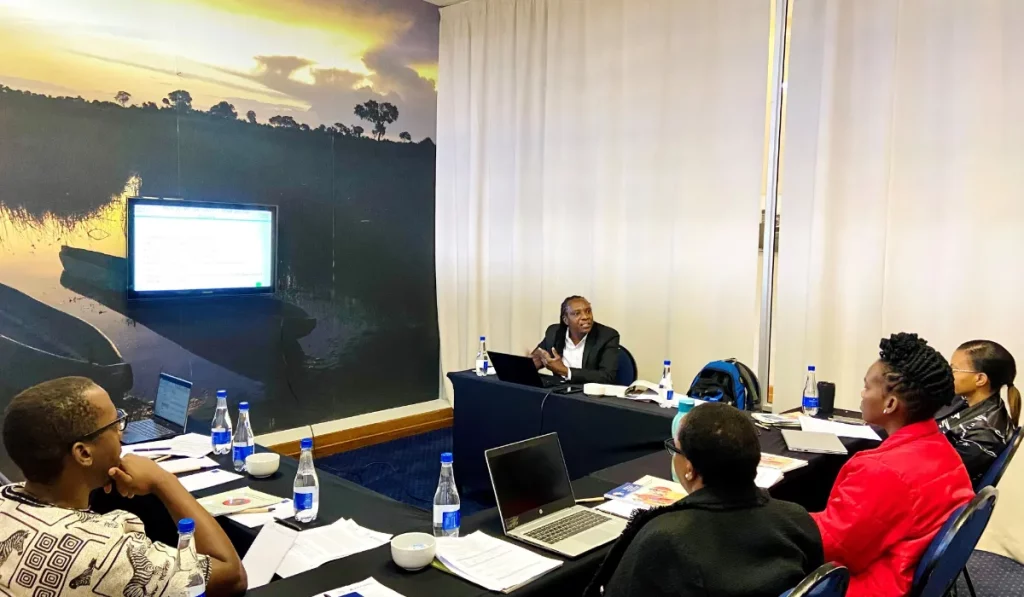In preparation for the Gender is My Agenda Campaign (GIMAC) 5th Strategic Engagement with the African Union (AU) and Regional Economic Communities (RECs) on the AU theme “Acceleration of the African Continental Free Trade Area (AfCFTA) Implementation”, the GIMAC Peace and Security Cluster, which includes ACCORD, the Women’s International Peace Centre (WIPC), and Femmes Africa Solidarité (FAS), organized a Pre-Consultation Meeting. The meeting focused on the implementation of the AfCFTA, particularly breaking trade barriers for African women and youth to ensure their inclusion.
The primary focus of the discussion was on women cross-border trade, specifically those working in conflict and post-conflict environments. The topics encompassed, promoting gender mainstreaming in the AfCFTA implementation; the role of RECs and Civil Society Organizations (CSOs) in supporting gender mainstreaming within the AfCFTA; and the experiences of women trading at the borders, with a specific focus on Sudan and South Sudan. One of the main challenges identified during the meeting, was the financial and resource constraints faced by women in informal cross-border trade (ICBT). Speakers highlighted the gendered barriers that women traders often encounter. Limited access to markets, finance, credit, and discriminatory practices also hinder their engagement in ICBT, and impede their access to regional and national initiatives aimed at enhancing trade.
The panel of speakers included, Ms Itumeleng Dlamini, Advisor at the African Peer Review Mechanism (APRM); Advocate Flaviana Charles, Director of Gender , Women, and Children Affairs at the International Conference on the Great Lakes Region ( ICGLR); Ms Jane Gordon Sworro, South Sudan Women Entrepreneur’s Association representative; and Mrs Elizabeth Ajok Makerchol, Care Club Foundation for Widows & Orphans. Ms Dlamini shared information on APRM study on the role of AfCFTA on women involved in ICBT, and emphasized the many opportunities for women led businesses, within cross border trade, under the AfCFTA framework. The discussions also weighed in on the vast number of women who do not have access to finances to start or grow businesses, which then limits their trade participation. Using South Sudan as one of the case studies, provided the participants with some insight on the plight of the South Sudanese women, sharing that South Sudanese women aged 20–45 years contribute to some form of informal trading specifically to sustain their families, and most of whom are operating without any form of knowledge or safety, especially at the borders.
To address these challenges and promote women’s participation in cross-border trade, several recommendations were proposed, which included, calling on the AU and RECs to develop supportive policies. It was noted that creating an enabling environment for cross-border trade by enhancing infrastructure and streamlining bureaucratic procedures will decrease some of key challenges that women face in cross border trade. Additionally, efforts to increase access to finance and market opportunities, education and skills training, monitoring mechanisms and funding for awareness campaigns and policy dissemination were deemed crucial. Furthermore, the implementation of simplified systems, tax exemptions for women’s goods, and the establishment of microfinance banks with simplified conditions were suggested to support women in cross-border trade. The discussions allowed for clarity on the AfCFTA and what can be done to ensure the inclusion of African women and youth. If fully implemented, the free trade area will lead to greater peace, stability, and sustainable development and has the potential to be a peace and security response intended to facilitate the economic and political integration of Africa.

